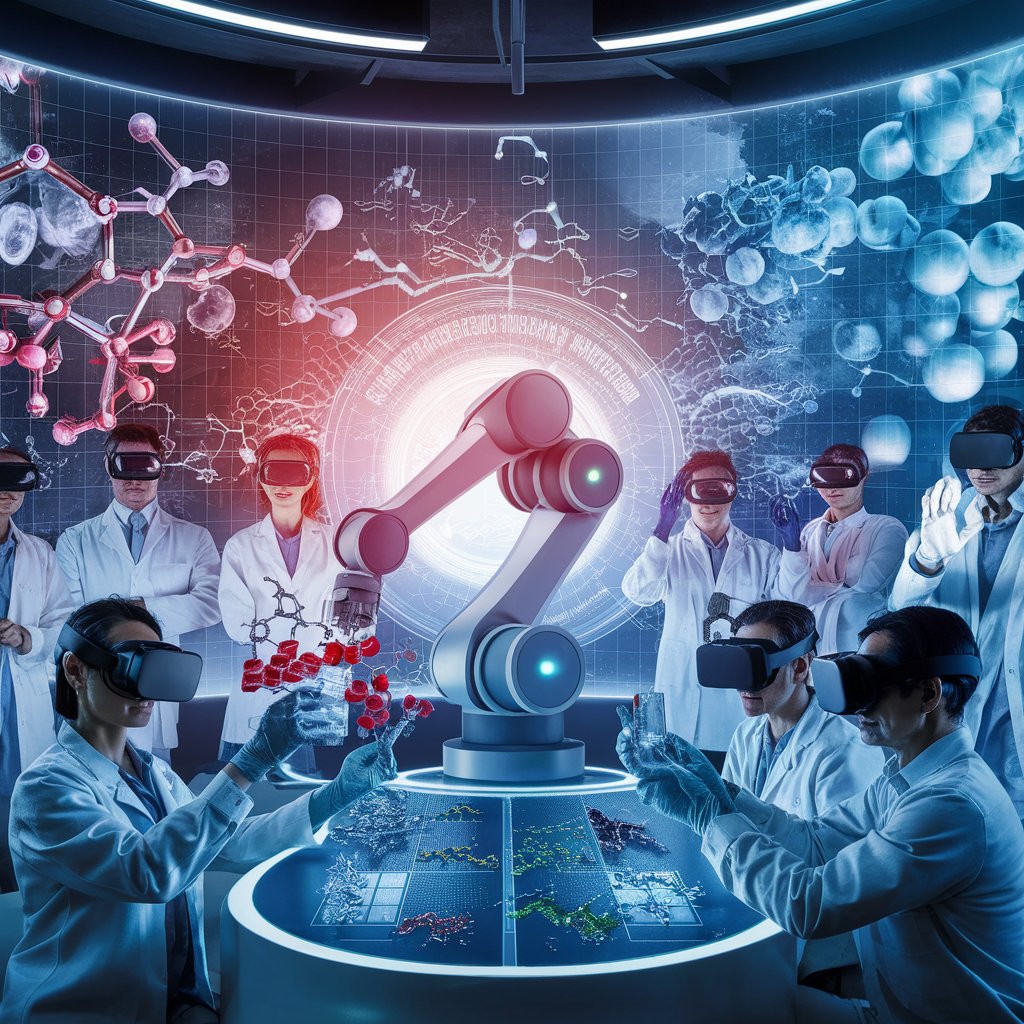In recent months, generative artificial intelligence (AI) has taken the world by storm. AI systems like ChatGPT and Stable Diffusion have captured the imagination of the masses with their impressive and sometimes controversial ability to generate human-like text and artwork. However, it may come as a surprise to some that — in addition to writing Twitter threads and dating app messages — AI is also well underway in Revolutionizing Drug Discovery discovery of life-saving drugs.
Accelerating Drug Development Timelines
One of the most significant impacts of AI in drug discovery is its ability to drastically shorten development timelines. Traditionally, bringing a new drug to market can take over a decade and billions of dollars. AI, with its advanced algorithms and machine learning capabilities, can analyze vast datasets at incredible speeds, identifying potential drug candidates in a fraction of the time.
For instance, AI models can sift through millions of chemical compounds to predict their effectiveness against specific diseases. This rapid analysis not only speeds up the initial stages of drug discovery but also allows researchers to focus on the most promising candidates, thus streamlining the entire process.b
Enhancing Precision and Reducing Costs.
AI’s ability to enhance precision is another game-changer in drug discovery. By leveraging deep learning and neural networks, AI systems can predict how different molecules will interact with the human body. This high level of accuracy reduces the likelihood of adverse effects and increases the chances of clinical success.
Moreover, AI-driven drug discovery significantly cuts costs. Traditional methods involve extensive trial and error, which is both time-consuming and expensive. AI can reduce these inefficiencies by predicting failures early in the process, ensuring that only the most viable candidates proceed to clinical trials. This not only saves money but also conserves valuable resources.
How AI Being Used ?
Traditional drug discovery is a notoriously time consuming and expensive process, with pre-clinical stages typically taking three to six years and costing hundreds of millions to billions of dollars. However, a host of AI tools are revolutionizing nearly every stage of the drug discovery process, offering substantial potential to reshape the speed and economics of the industry.
- Target identification: At the target identification phase of drug discovery, AI is being trained on large datasets, including omics datasets, phenotypic and expression data, disease associations, patents, publications, clinical trials, research grants, and more to understand the biological mechanisms of diseases and to identify novel proteins and/or genes that can be targeted to counteract those diseases. Combined with systems like AlphaFold, AI can go even further than mere target identification by predicting the 3D structures of targets and accelerating the design of appropriate drugs that bind to them.
- Molecular simulations: AI is also being used to reduce the need for physical testing of candidate drug compounds by enabling high-fidelity molecular simulations that can be run entirely on computers (i.e., in silico) without incurring the prohibitive costs of traditional chemistry methods.
- Prediction of drug properties: Some AI systems are being used to bypass simulated testing of drug candidates by predicting key properties such as toxicity, bioactivity, and the physicochemical characteristics of molecules.
- De novo drug design: While traditional drug discovery has historically involved the screening of large libraries of candidate molecules, AI is shifting this paradigm too. Some systems are capable of generating promising and never-before-seen drug molecules entirely from scratch.
- Candidate drug prioritization: Once a set of promising “lead” drug compounds has been identified, AI is used to rank these molecules and prioritize them for further assessment, with AI approaches outperforming previous ranking techniques.
- Synthesis pathway generation: Going beyond theoretical drug design, AI is also being used to generate synthesis pathways for producing hypothetical drug compounds, in some cases suggesting modifications to compounds to make them easier to manufacture.
As AI systems continue to improve, the idea of fully automated end-to-end drug discovery appears less and less to be matter of if, but of when.
Stay updated with the latest AI news and breakthroughs by visiting our daily blog at AIPromptopus.

